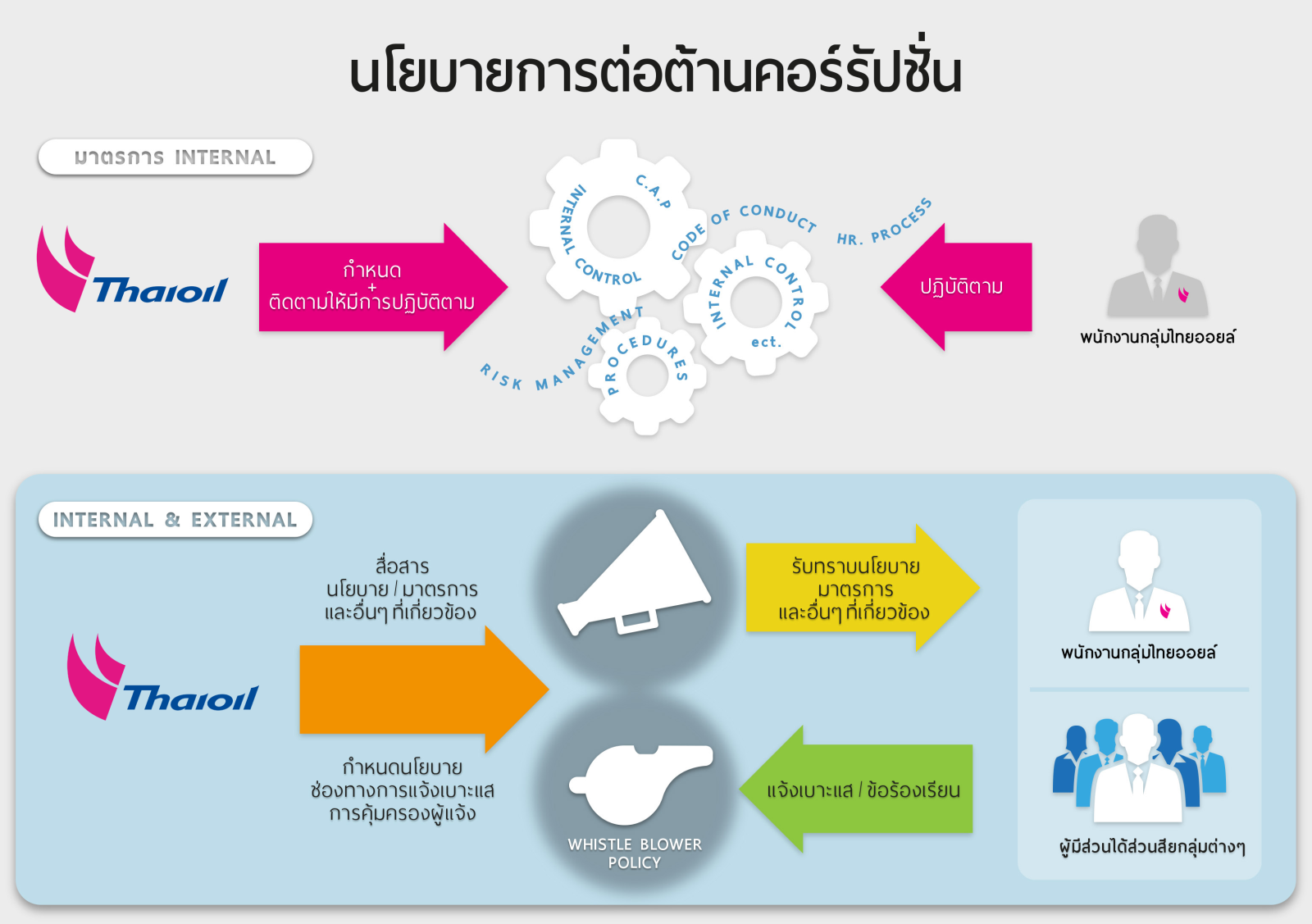Policies Relating to Corporate Governance

|

Anti-Corruption PolicyThe Board of Directors (the Board), the management, and employees must not corrupt or accept corruption of all forms in any circumstances, covering the business of the Company in every country and in every relevant agency. The Company defines guidelines, operating measures, and roles and duties of responsible persons, as well as regularly monitoring and reviewing the implementation of the anti-corruption policy in compliance with changes in businesses, rules, regulations, and relevant laws. |
Corruption means
any action, whether offering, promising, soliciting, demanding, giving or accepting assets or other benefits to government officials or other persons in business dealing with the Company, whether directly or indirectly, as a motive for them to do or refrain from doing any act to acquire or keep benefits that are unsuitable to the business, except as allowed by the laws, rules, regulations, local customs or tradition, or business customs.
1. In implementing the policies, refer to the guidelines set by the Company in the corporate governance manual and code of business conduct, as well as rules, regulations, and relevant manuals on business operation.
2. In dealing with major corruption risks, the Company ensures that directors, the management, and employees cautiously perform the following duties:
2.1 Political Contribution
2.2 Charitable Contribution and Sponsorship
2.3 Gifts, Hospitality, and Expenses




